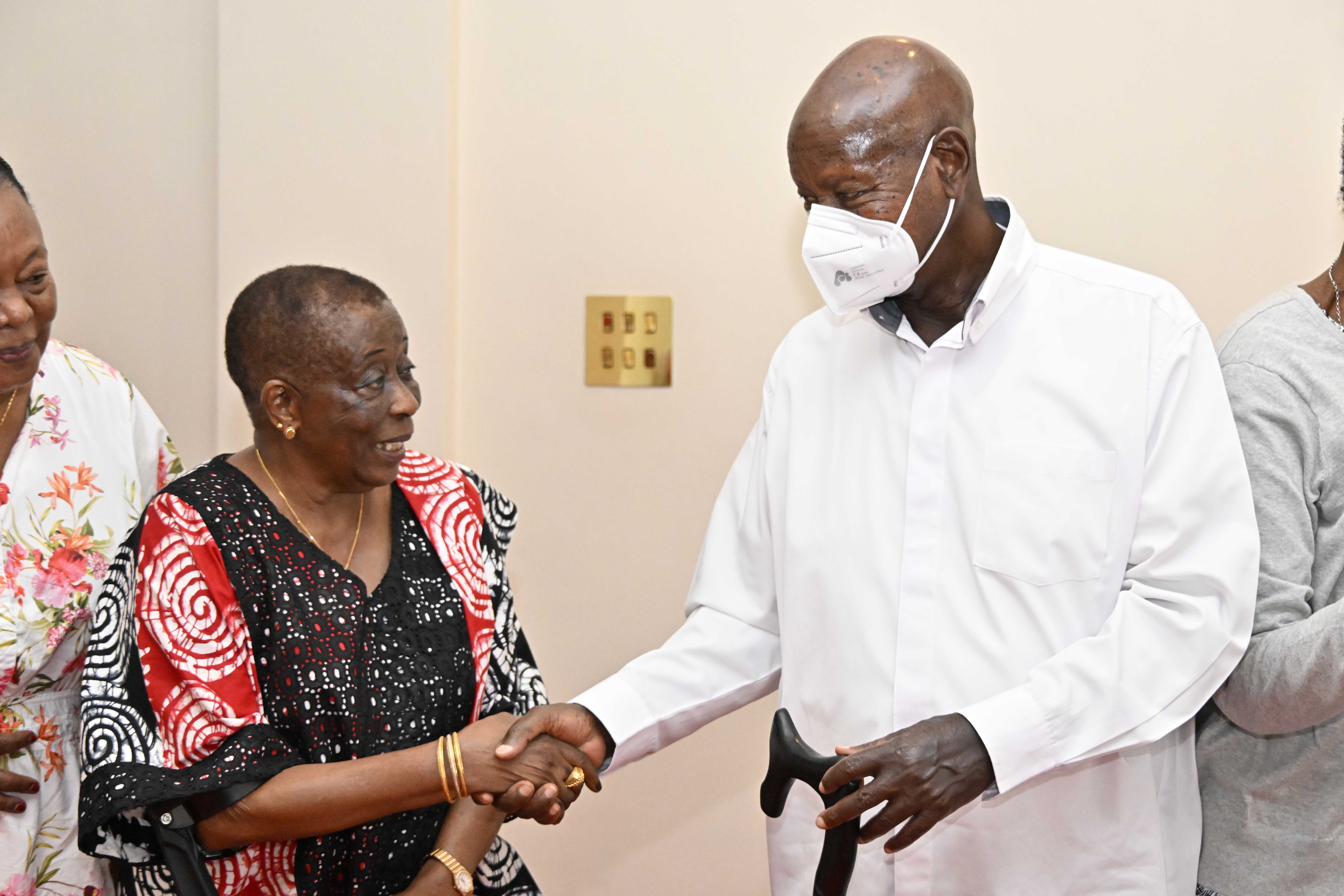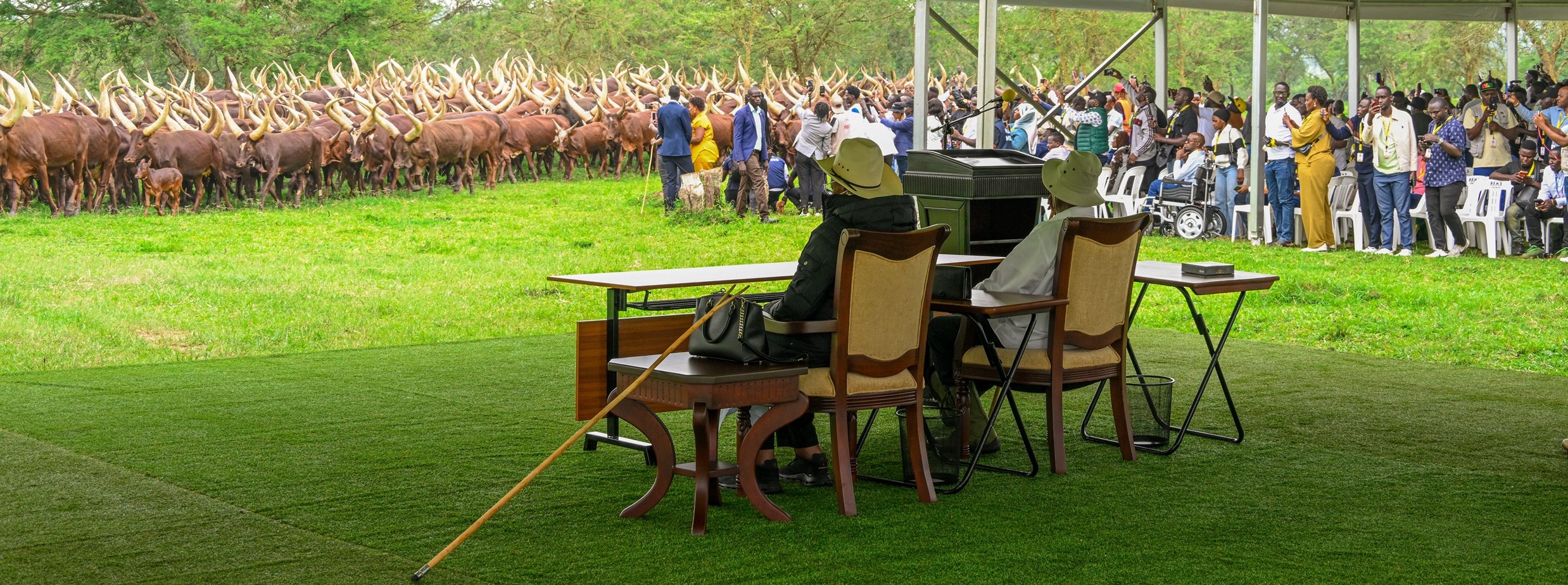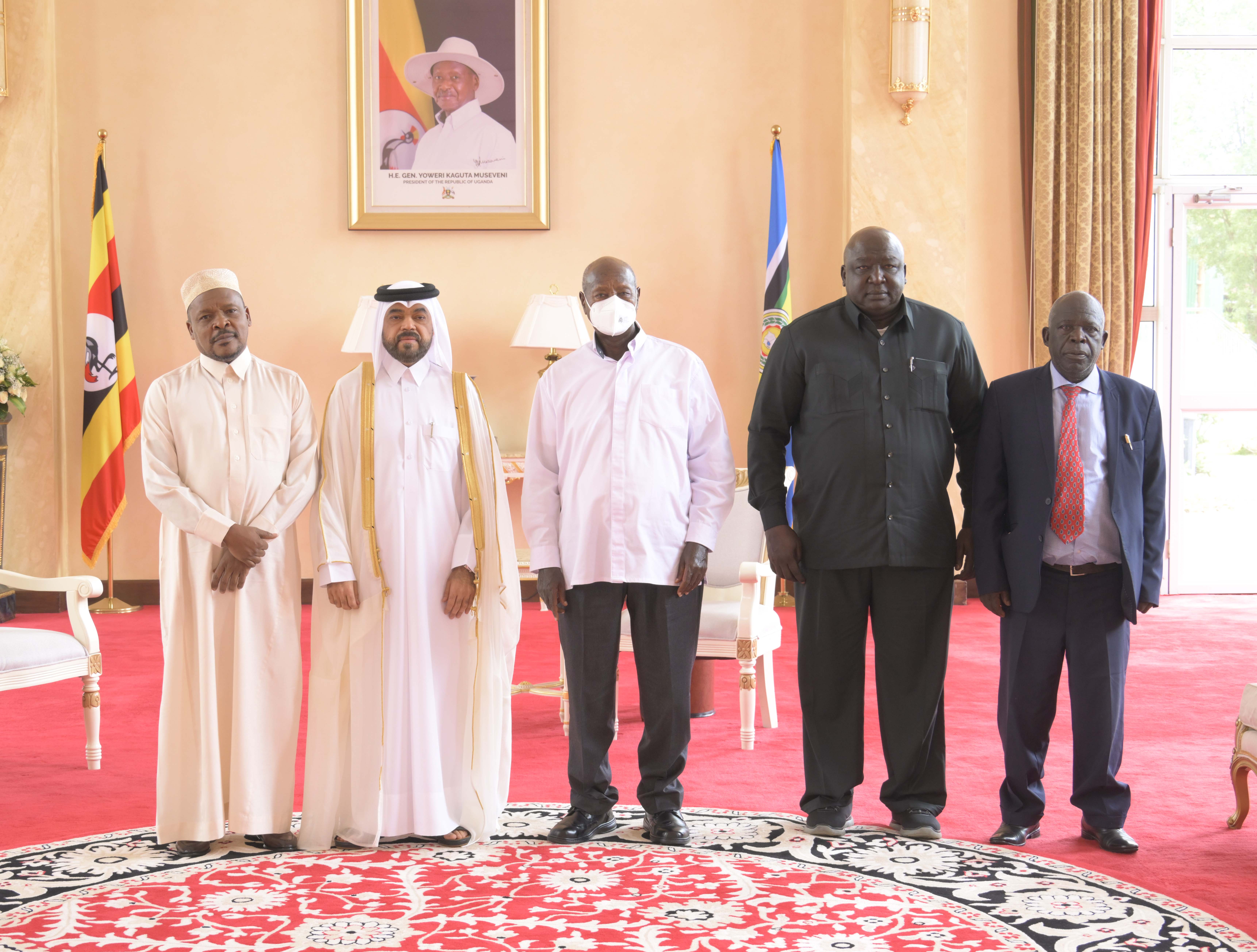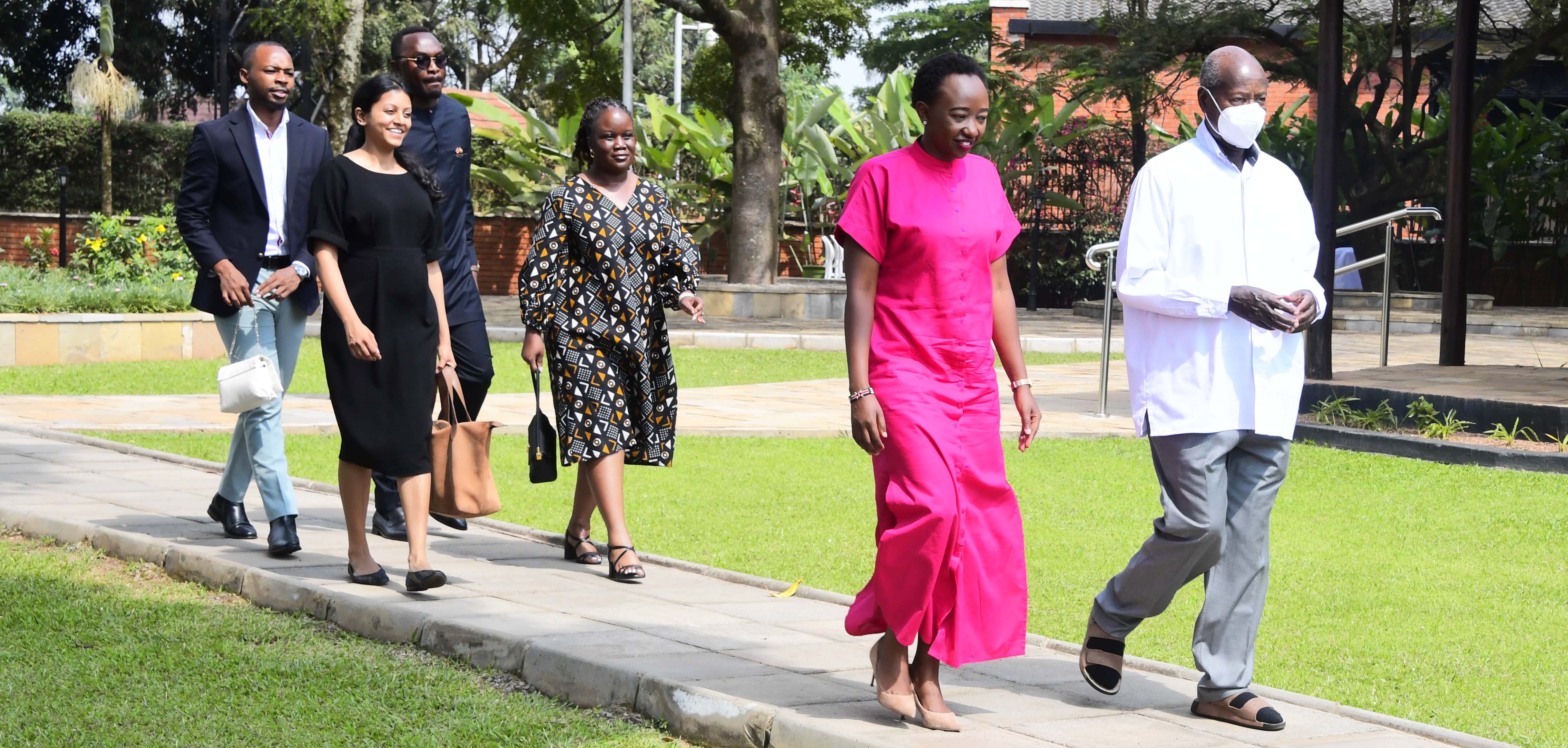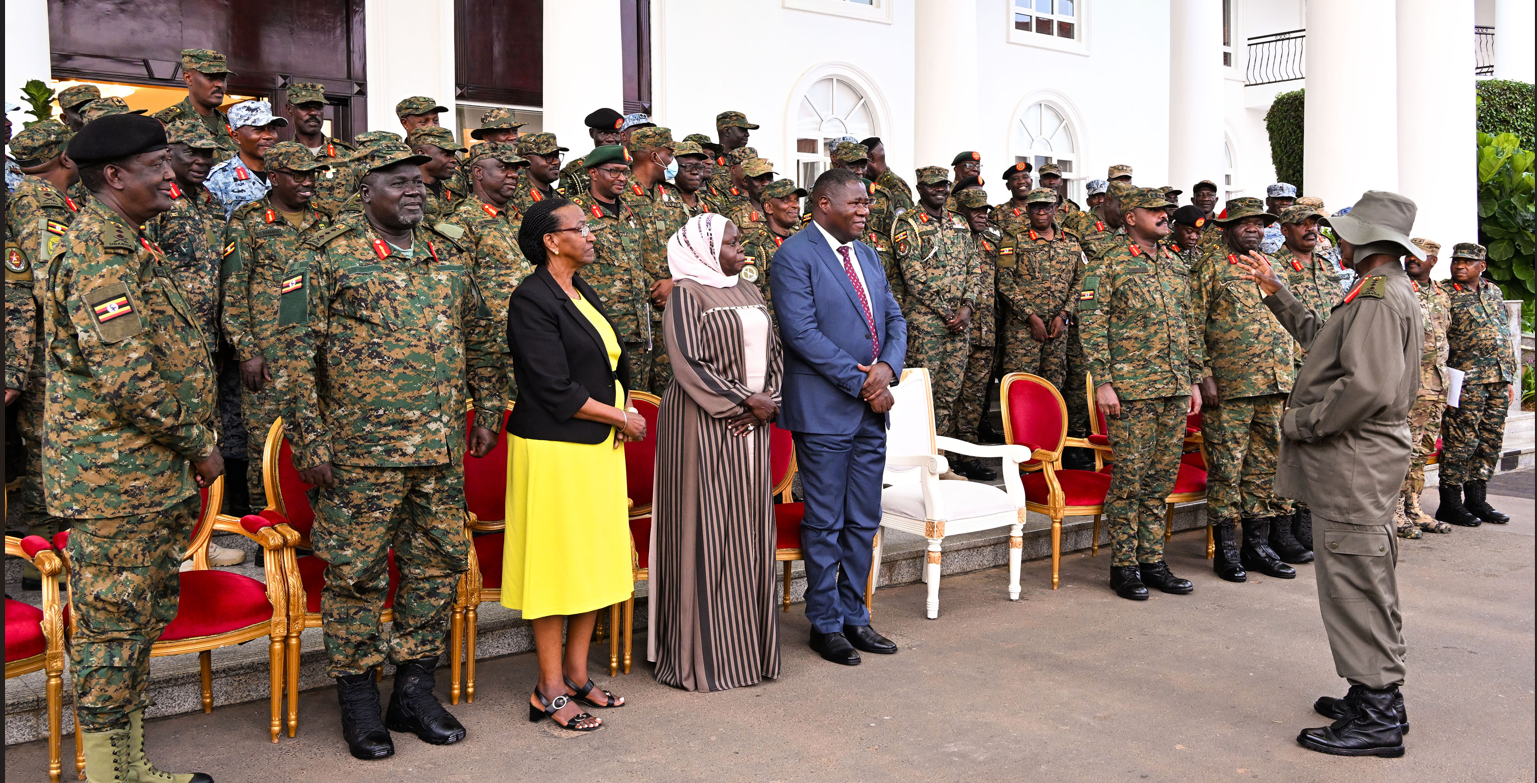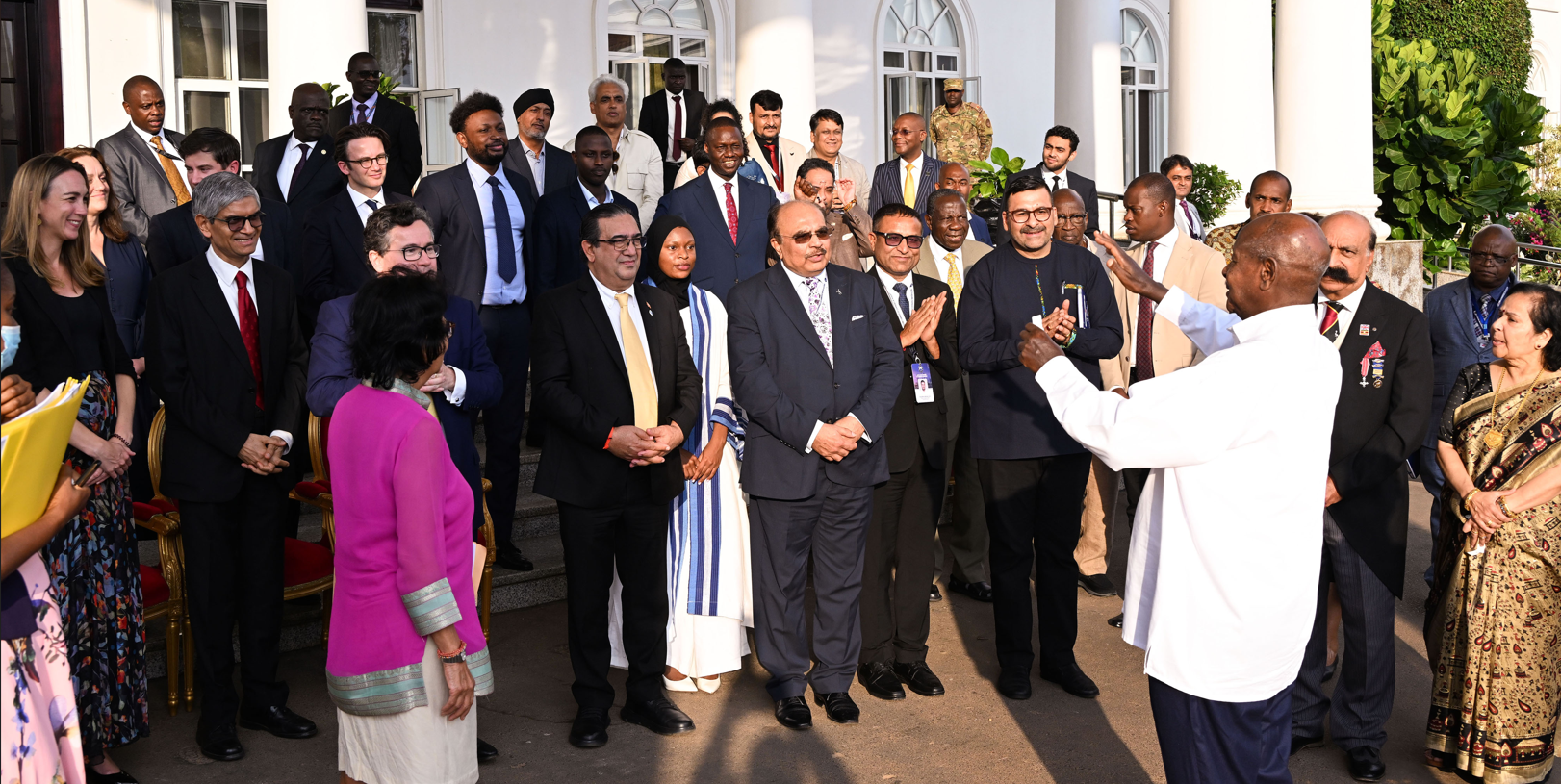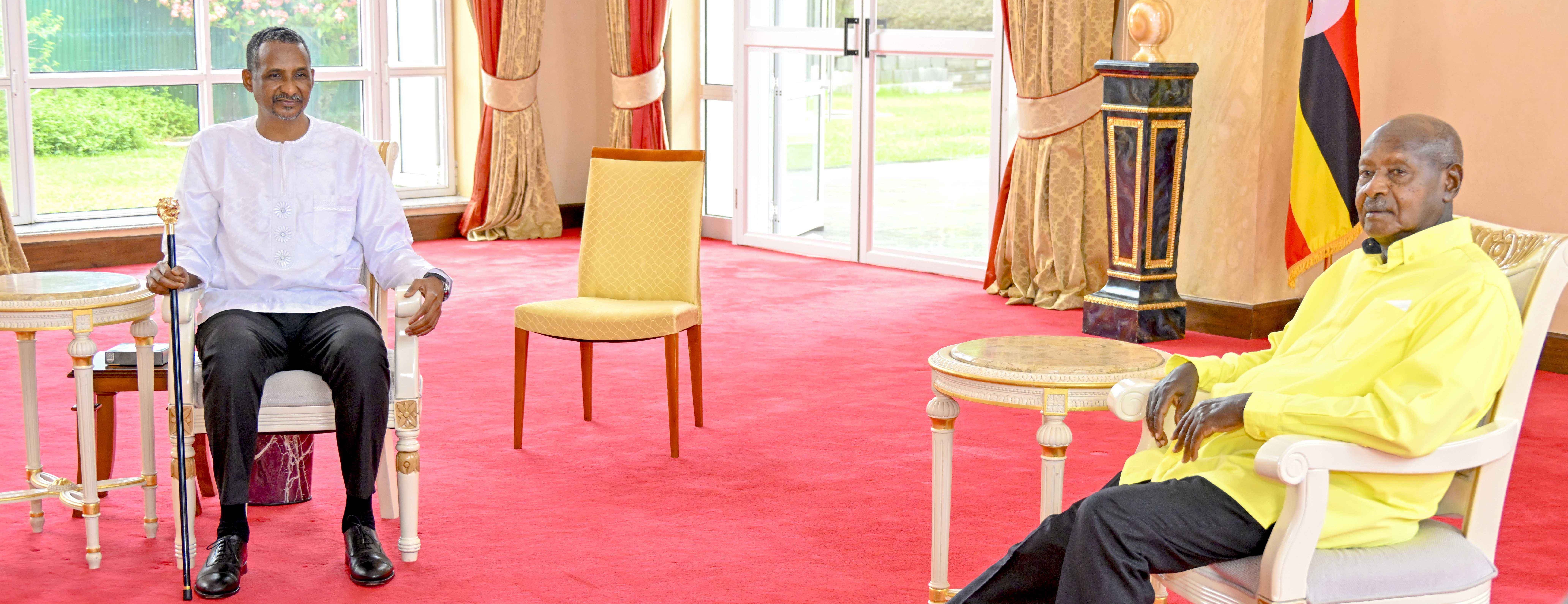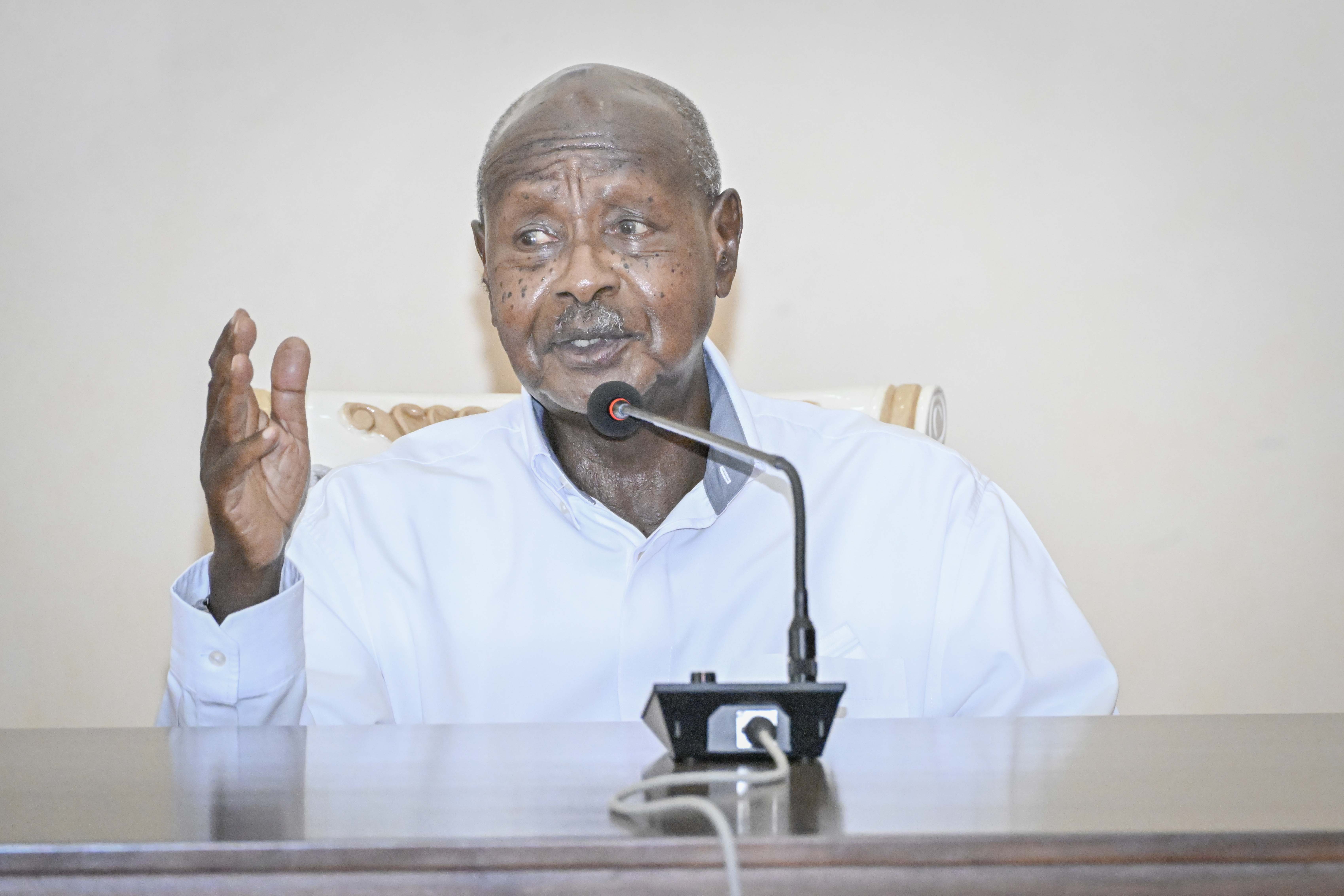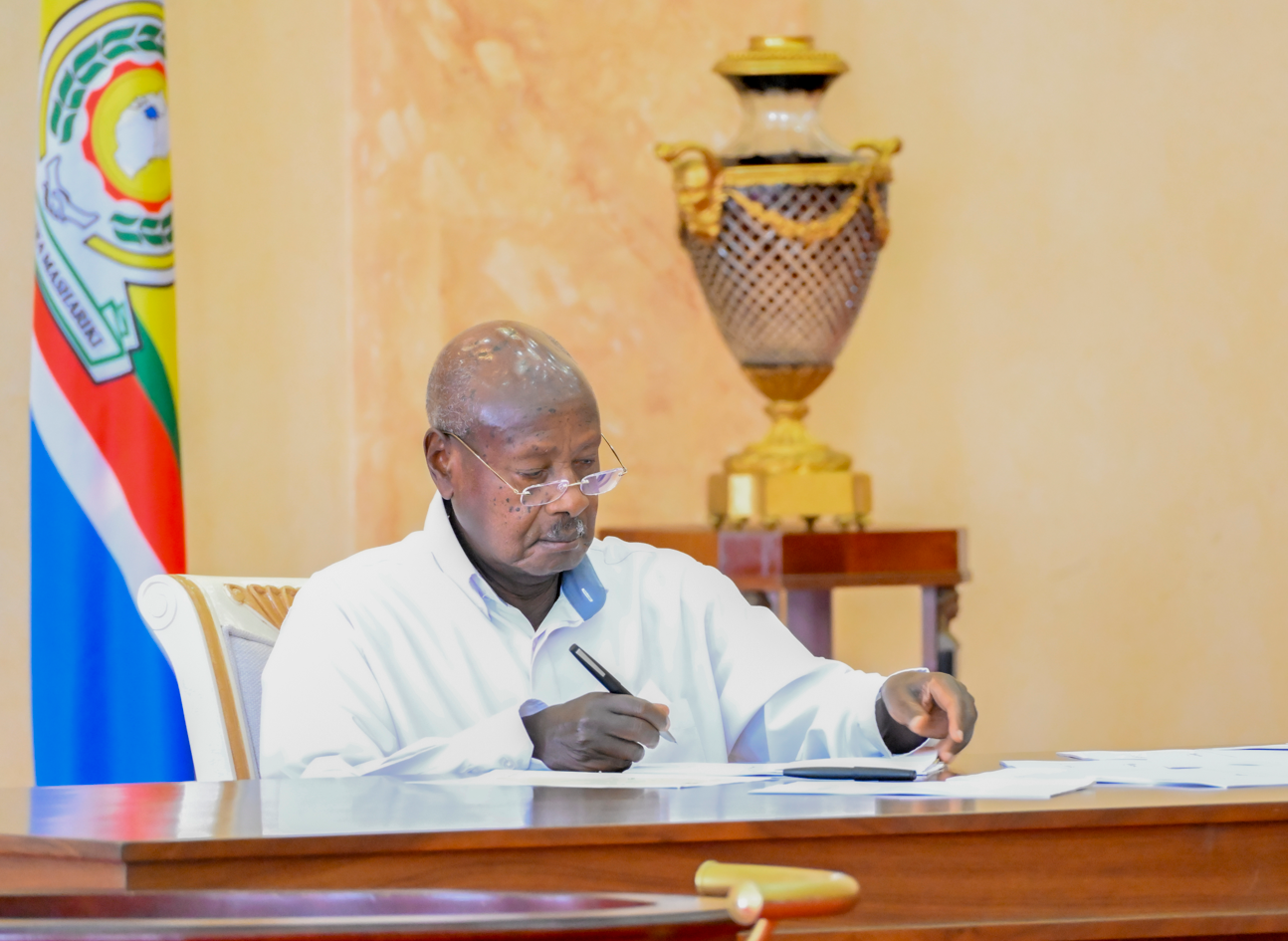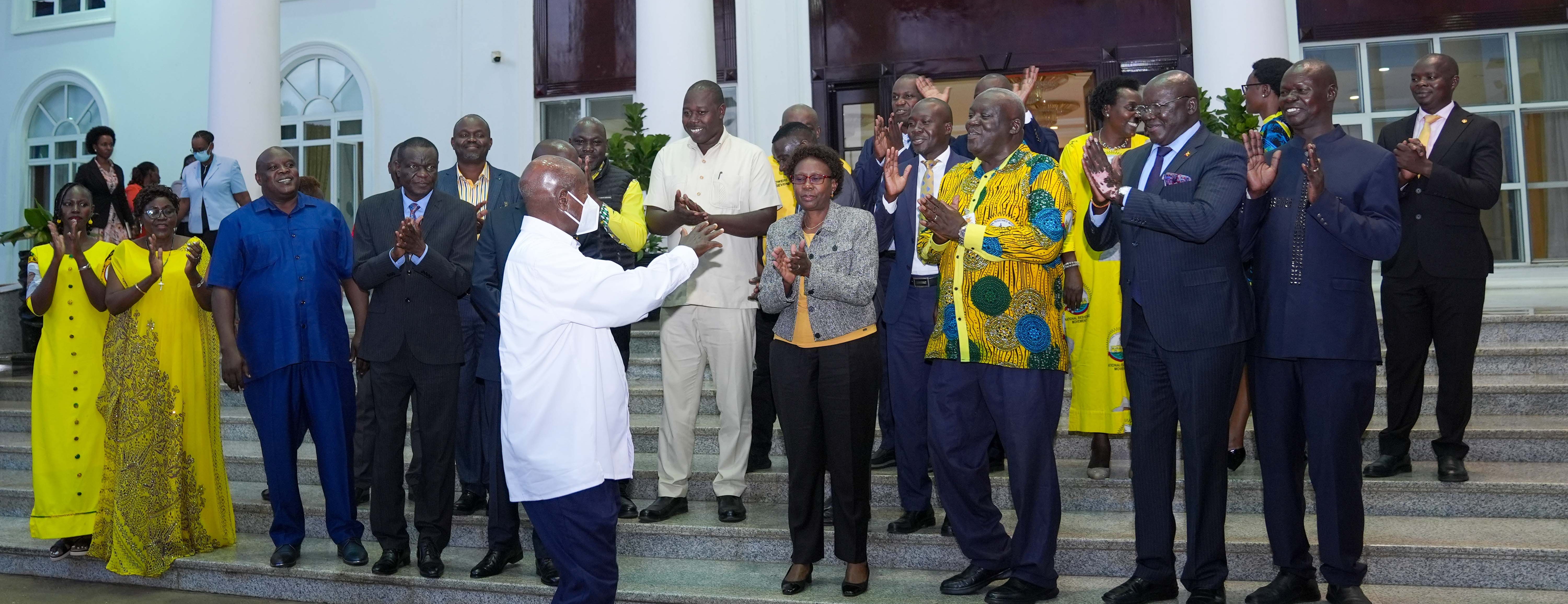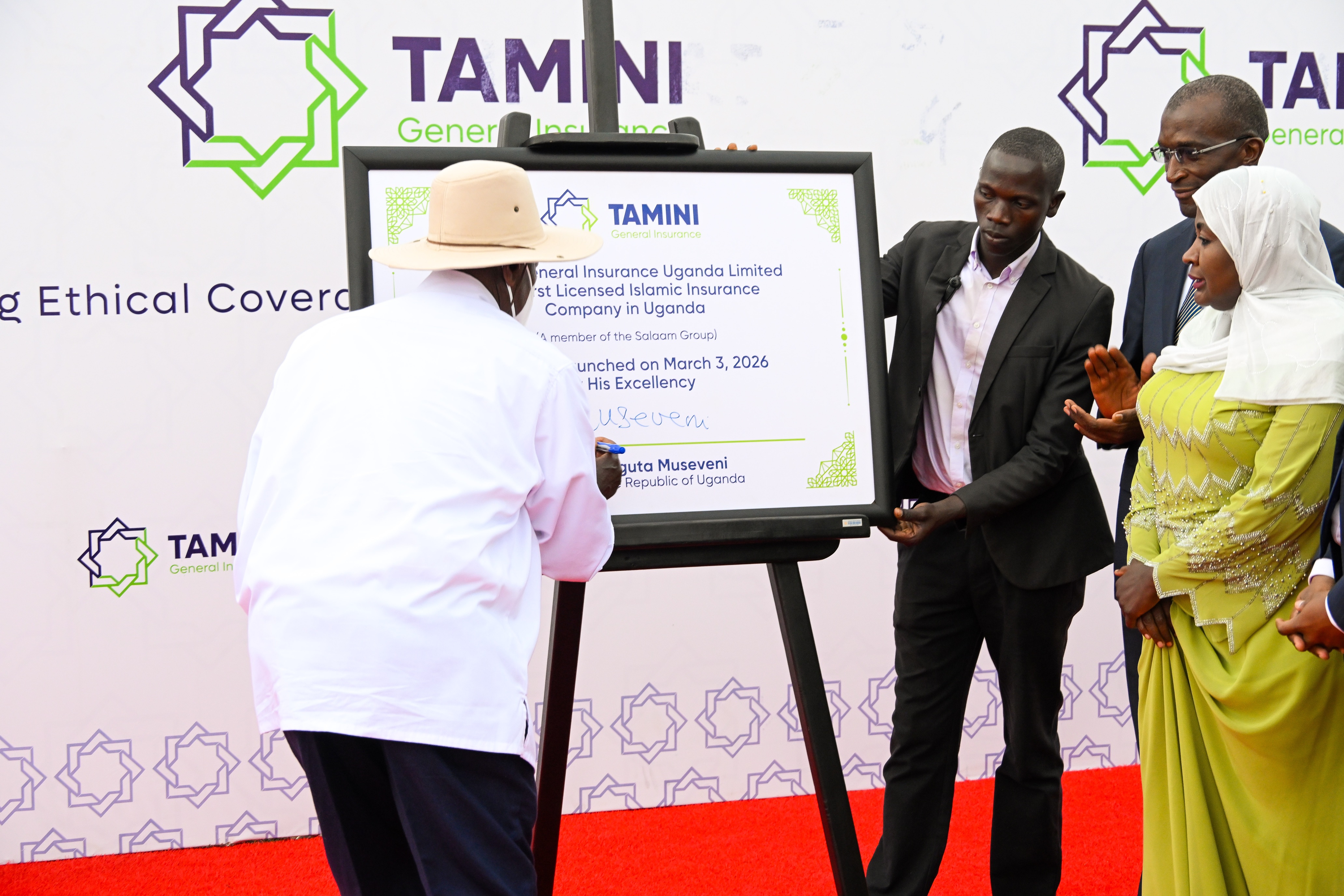
PRESIDENT MUSEVENI LAUNCHES UGANDA’S FIRST ISLAMIC INSURANCE FIRM, RALLIES MUSLIM COMMUNITY TO INVEST IN COMMERCIALLY VIABLE ECONOMIC VENTURES
President Yoweri Kaguta Museveni has today launched Tamini General Insurance, Uganda's first Islamic Insurance firm. Tamini General Insurance is a conglomerate of Saalam Group designed to offer Sharia alternative insurance services based on mutually beneficial terms with joint insurance guarantees for insurers and the insured. The event took place today at Millennium Park - Lugogo, Kampala City during an Iftar dinner organised by the Senior Presidential Advisor Political Affairs and Head of NRM National Chairman's Office, Hajjat Hadijah Namyalo. “Salaam Bank and Tamini, you are welcome to Uganda. Uganda is a growing market with over 45 million people. The population will reach 100 million by 2050. You are in Uganda at the right time," the President said. He rallied the Muslim community to invest in commercially viable economic ventures as opposed to consumptive spending. President Museveni also applauded Salaam Group for extending all inclusive financial services and products that cover both low- and middle-income earners and defined their operations as a comprehensive financial cycle that offer financing and insurance options. “Insurance is about preparing so that in case anything goes wrong, you have backup. When you borrow, you invest but what if things do not go as planned? I thank Tamini Insurance for completing the cycle,” he stated. President Museveni further explained that the government is keen towards the implementation of interest free wealth creation initiatives like the Parish Development Model (PDM),adding that the 6 per cent annual charge is only intended to control inflation to maintain stability of the fund. He therefore implored the Muslim community to take advantage of such government initiatives. “We should work to eliminate poverty by getting everyone out of poverty. PDM will help to ensure the remaining 30 percent of Ugandans also gets out of poverty,” he said. President Museveni also informed PDM management committees to implement a matrilineal approach in selection of beneficiaries of the model funds. He explained that matrilineal approach that is based on kinship exclusively through the female line in a home, will ensure involvement of more families including polygamous families as opposed to patrilineal approach that may deny some women-led families chance to benefit from PDM. Additionally, the President commended women for their active involvement in economic activities that positively impact their households and national economy. He also pledged to inject more funds to support Muslim women families from Shs2 billion to about Shs20 billion. Mr. Mohamed Bahdon, group CEO Tamini Insurance identified the three operational pillars for their firm on the Ugandan market that include ethical investment, transparent oversight and collective participation to meet the overall objective of financial inclusion for all. He noted that Islamic based Insurance will offer affordable insurance options and redefine the country insurance landscape and a new echo system to that effect aligned to Uganda's vision 2040. “A farmer who accesses Halal financing from Salaam Bank to grow his crop can now insure that crop through Tamini,” Bahdon said. "This will result in Uganda's economic transformation from a consuming nation into a producing nation." The Chief Executive Officer of Insurance Regulatory Authority (IRA), Alhaji Ibrahim Kaddunabbi Lubega reported that Uganda's insurance sector has gradually muscled up to over Shs2 trillion with higher projections from the new sharia based Islamic Insurance scheme on board brought by Tamini General Insurance. Alhaji Kaddunabbi revealed that currently the global Sharia based Insurance is valued at USD 36.6 billion and projected to hit over USD 75 billion by 2033 and Uganda adopting the same, renders immense opportunities to the country's insurance sector to blossom further. On her part, Hajjat Namyalo noted that the just commissioned Muslim based Tamini General Insurance company will pay more attention to the informal sector including market vendors, communities in disaster prone areas. On the other hand, Sheikh Muhammad Yunus Kamoga, a Tabliq Muslim Sect leader, thanked President Museveni for always pardoning those caught on the wrong side of the law, mentioning himself and the prominent city motor car dealer Hajji Muhammad Ssebuufu. He however requested him to grant pardon to two prominent Muslims currently under detention. He also commended the President for fostering unity among Muslims and transforming Uganda into a modern society with equal benefits for all religions and aiding the establishment of Muslim education and financial institutions.

